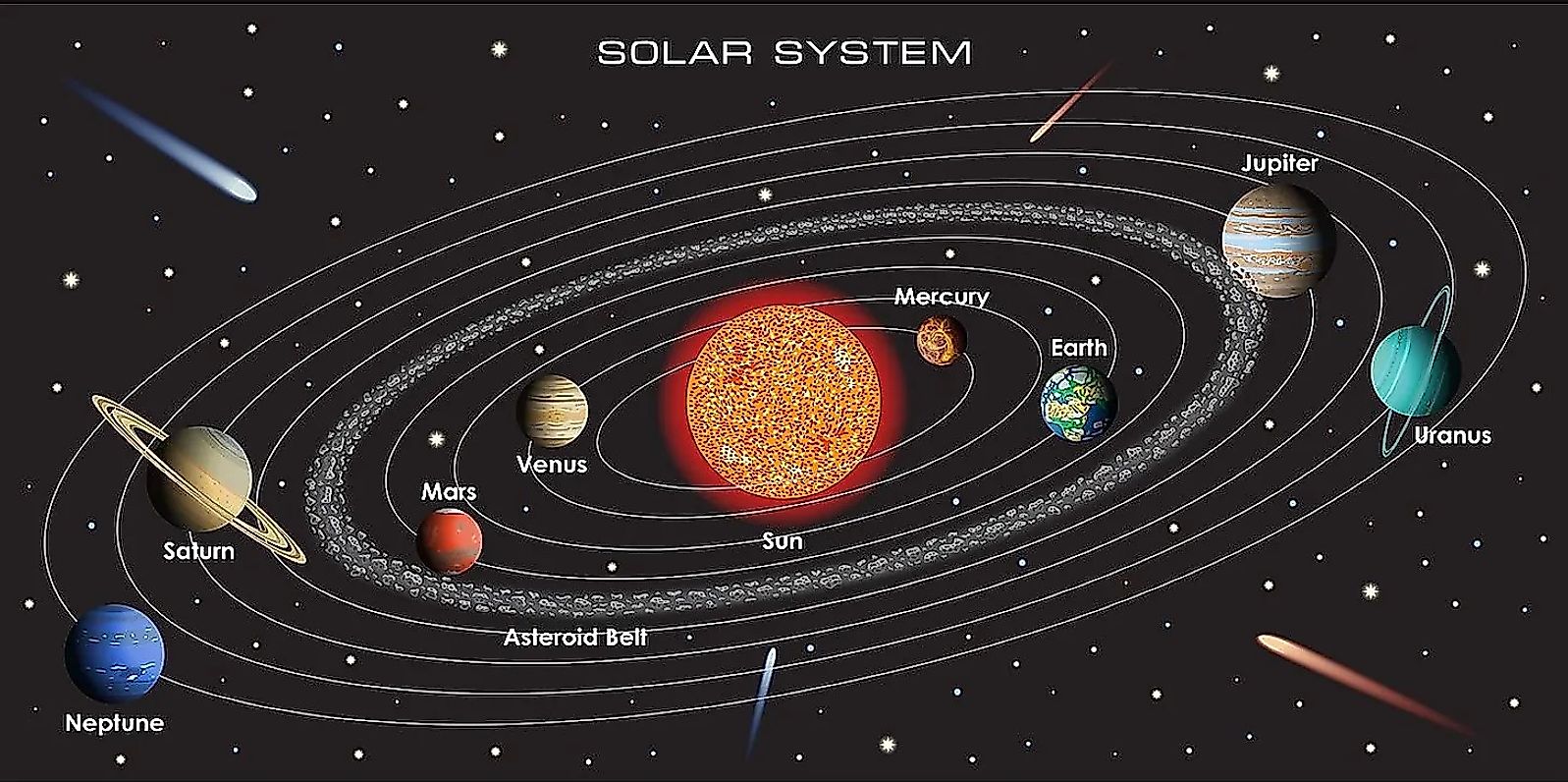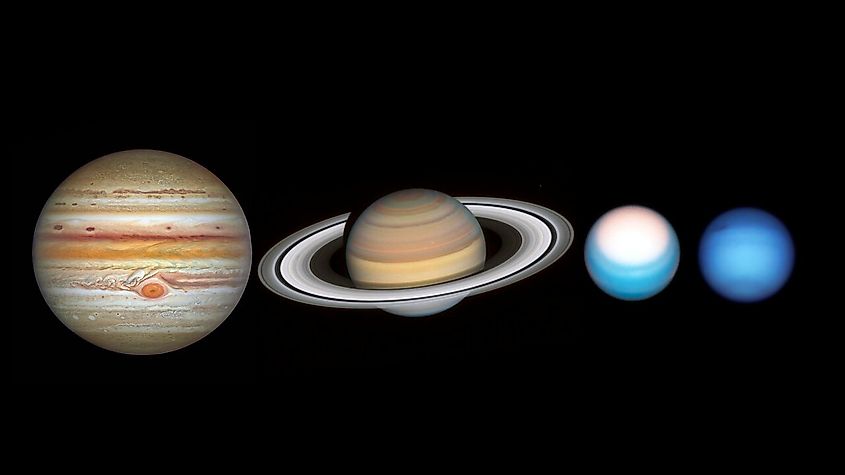
What Is the Length of a Year on Each Planet?
Here on Earth, we define a year as being the amount of time it takes for the Earth to complete one full orbit around the sun. Every New Year's Day, the Earth returns to the same point it was the year before.
The amount of time it takes a planet to orbit the sun is dependent on how fast a planet orbits the sun, which in turn is determined by how far away a planet is from the sun. The closer a planet is to the sun, the stronger the gravitational pull from the sun. The sun’s gravity keeps the planets in orbit, and the stronger the gravity, the faster the planets move. Thus, the amount of time it takes for each planet to orbit the sun increases as you get further away. How long does it take for each planet to orbit the sun?
The Approximate Length of Year in Earth Days on Each Planet in Our Solar System
| Planet | Length of Year in Earth Days |
|---|---|
| Mercury | 88 |
| Venus | 225 |
| Earth | 365 |
| Mars | 687 |
| Jupiter | 4,333 |
| Saturn | 10,759 |
| Uranus | 30,687 |
| Neptune | 60,190 |
The Inner Solar System

The planets are generally divided into two separate regions: the inner and outer solar system. Both regions are home to four planets. The inner solar system contains Mercury, Venus, Earth, and Mars. Mercury is the innermost planet in the solar system, as well as the smallest planet in the solar system. Since Mercury orbits closest to the sun, it is also the fastest planet. A year on Mercury is only 88 days long, or just over two months of Earth time. Venus is the second closest planet to the sun and thus has the second shortest year. It takes Venus 225 days to orbit the sun, which isn’t too much shorter than Earth’s 365 days. Mars is the outermost of the rocky planets, and so it takes the longest amount of time to orbit the sun in the inner solar system. It takes Mars 687 days to orbit the sun, nearly twice as long as Earth’s year.
The Outer Solar System

The four planets of the outer solar system are Jupiter, Saturn, Uranus, and Neptune. As one might expect, the length of a year on each of these worlds is exceptionally longer than that of the inner planets. Jupiter is the innermost of the gas giants, taking 4,333 days to orbit the sun. That’s equivalent to nearly 12 years on Earth. Next is Saturn, which takes 10,759 days to orbit the sun, or nearly 30 years on Earth. Uranus and Neptune are much further from the sun than Jupiter and Saturn, and thus the amount of time they take to orbit the sun is truly mind-blowing. On Uranus, a year is 30,687 days, or about 84 years on Earth. Neptune is even further, taking 60,190 days to orbit the sun. That’s equivalent to 165 years on Earth. In fact, Neptune has only completed one orbit of the sun since its discovery in 1846.











